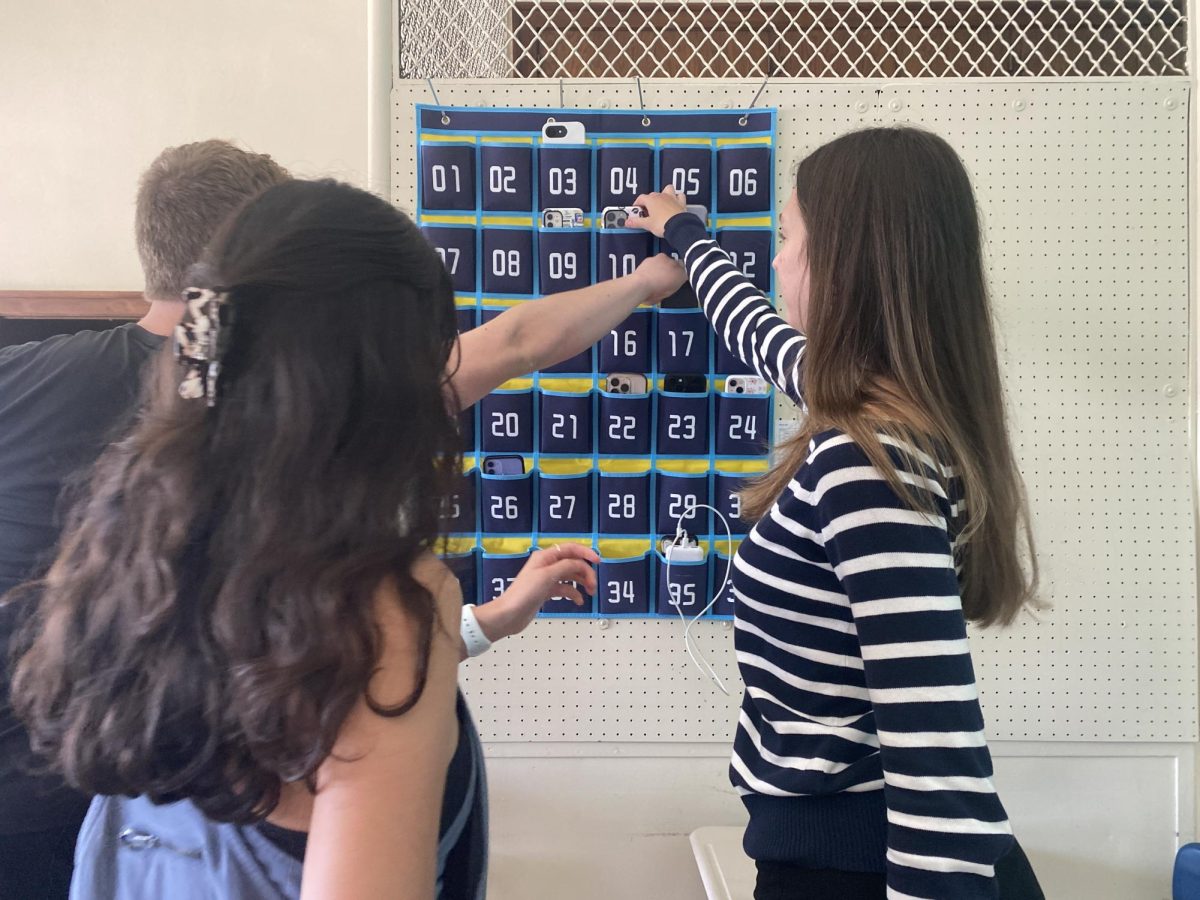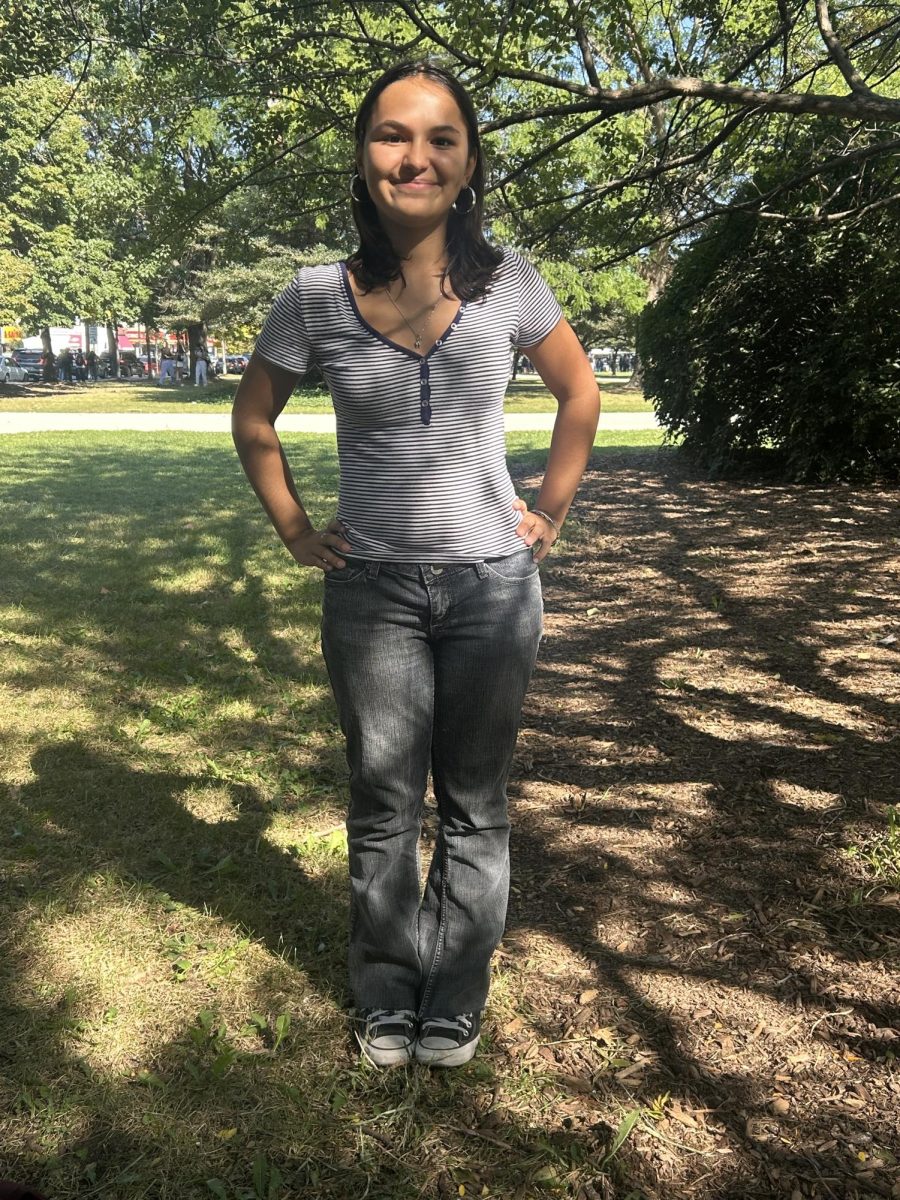Students type tirelessly in an attempt to do a multitude of things. One student is drafting questions for a survey, another is skimming through research papers on environmental gentrification, and another is conferencing with the class’s TA on how to make their paper stronger. All the while, they chase the same end goal: a five on the AP exam.
AP Capstone is a two-year program in which students are taught how to research and the tools needed to conduct a study and write a research paper.
The first of the two classes is AP Seminar where students are encouraged to explore a research topic of their choice and examine it from every angle. The student learns to write a fact-based argument by incorporating expert sources and knowledge into a paper and an accompanying presentation.
Senior Maya Radunsky said the class has improved the overall quality of her writing. Additionally, Radunsky also acknowledges how the classes provide you with research knowledge. “It’s so much easier to find sources now,” Radunsky said. Specifically referring to where to locate academic sources and how to evaluate websites and their credibility.
Junior Angelique Rodriguez said the class allows her to explore her interests and merge them with her academics. Rodriguez, who is currently writing a paper on improving gender diversity in the tech industry, appreciates the class’s ability to help students explore their outside interests in depth. “So it’s nice that I can write while also writing about something that I take an interest,” Rodriguez said.
AP Research—the last of the two classes—teaches students how to write a research paper and how to conduct individual research. The class makes students focus on a single issue and gather evidence of the best possible solution to this issue.
Senior Ailey Kinsella, who is currently taking AP Research, has high expectations that the skill of writing an academic paper will transfer to her college career. “I feel that going into college, I’ll be a lot more prepared to write research essays and even conduct research because we’re currently conducting a study in the class, and I feel like that will show up with my professors,” Kinsella said.
Both classes have the same teacher, Gerardo Gonzalez, who has taught the class since 2017 when it was available at Lane. Gonzalez’s teaching method involves being tough on his students and motivating students to confront failure head-on and learn from their mistakes. “I think a lot of the learning happens when students experience failure,” Gonzalez said. “The confidence that students develop through Seminar and Research is something that I think transcends the stuff that I’m grading on Aspen.”
Gonzalez added that the AP Capstone class aids in preparing students for their post-secondary education.
“My teachers would say, you have a five-page paper due in two weeks, and they wouldn’t really like to give me guidance on how to write a paper,” Gonzalez said. “That was a real struggle of mine in college, was understanding what the process of writing a paper required. So I think that getting that exposure in high school, and you know, having a teacher by your side who’s helping you through that process is really valuable.”
Additionally, he said that past students have written to him to express their gratitude for the program’s help in writing college papers. Gonzalez attributes this to the program’s emphasis on research skills, time management, and public speaking.
Though there are many benefits to AP Capstone, the class is not by any means a breeze. “Capstone is a love-hate experience,” Gonzalez admits. “I think that at the end of the program there is like a ‘I’m glad I took it’ [moment], even if I wasn’t always loving it.”
Senior Elisabeth Mincy acknowledges the class’s significant benefits over the negatives. “I’ve learned to manage my time better,” Mincy said. “And the presentation skills I’ve gained will carry through my life.”
Another notable aspect of the AP Capstone program is the internship opportunity offered to rising juniors to pursue their senior year. Senior Sophia Veranga, who is among the few students who partake in it, said that she goes to Northwestern University’s graduate campus 2-3 days a week during school to conduct research.
“The Northwestern AP Capstone program is very similar to an internship, however it is integrated into your high school schedule,” Veranga said. “You get placed with mentors and are expected to work with them to conduct your experiments, while also completing assignments for the normal AP Research class (although these assignments are mostly adjusted for this program).”
Despite working with mentors, Veranga said that most of her work is independent. “My mentors will mention some topics, give me brief overviews of the techniques and experiments I need to learn, but once I learn them, I’m expected to do them myself without supervision,” Veranga said.
Outside of the direct academic benefits, the program has helped students identify their future careers and narrow down their future field of study. Both Mincy and Radunsky found their future majors and possible careers through AP Capstone research. Gonzalez even encourages this by recommending his students to explore a topic involving their future intended major.
AP Capstone is a highly demanding class that students shouldn’t take lightly. As Kinsella puts it, “I think this would be a really great class for you to take, and you kind of get out what you put in for this class.”
“I highly recommend doing AP Capstone, as two years of classes that emphasize critical thought will give you a really strong base that you can take with you into whatever field you want to,” Veranga said. “In short, it may be hard, but I recommend getting over that learning curve during high school. Your future self will be thankful.”





